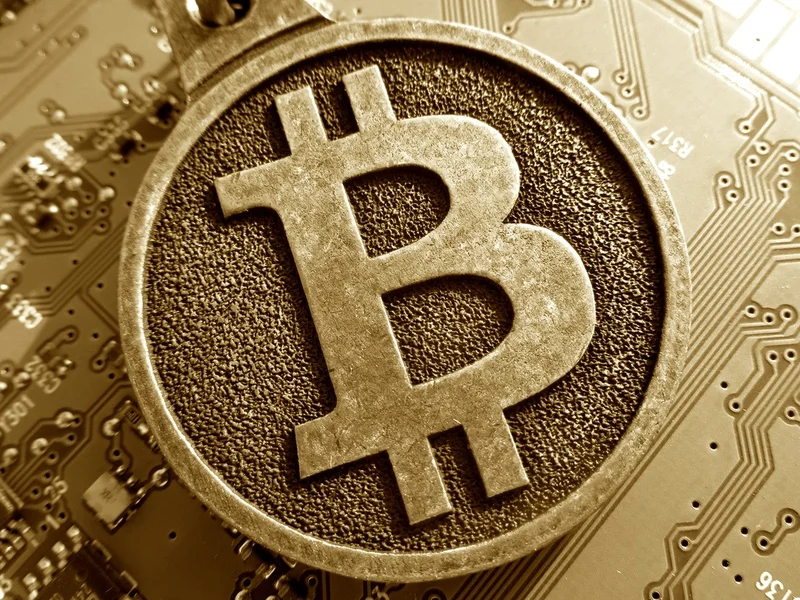Harvard Triples Down on Bitcoin: What's Driving the Institutional Stampede?
Harvard's Bitcoin Bet: Are Elite Endowments Finally Waking Up?
Okay, folks, buckle up, because something truly monumental is happening. Harvard, yes that Harvard, has more than tripled its Bitcoin ETF holdings. And Emory University is right there with them, expanding their crypto exposure. This isn't just about numbers; it's a seismic shift in institutional thinking, a crack in the dam of traditional finance. I’ve been watching this space for years, and let me tell you, this feels different.
From Skepticism to Strategy: The Ivy League's Crypto Evolution
Think about it. These are the institutions that shape minds, influence policy, and control vast sums of capital. For them to embrace Bitcoin, even in a measured way, is a validation unlike any other. Remember Kenneth Rogoff, the Harvard professor who predicted Bitcoin would crash to $100? He’s eating his words now, acknowledging he underestimated Bitcoin's resilience and role. Talk about a turnaround!
Harvard's latest filing shows a whopping 6.8 million shares of BlackRock’s iShares Bitcoin Trust, valued at around $443 million as of September 30th. That's a 257% increase from June! Emory University is also in the game, upping their stake in Grayscale’s Bitcoin Mini Trust to 1 million shares, worth $52 million. They've also got a smaller position in the iShares Bitcoin Trust. Harvard Triples Its Bitcoin Position as Emory Expands BTC ETF Holdings
Now, I know what some of you are thinking: it's a tiny fraction of Harvard's $56.9 billion endowment, right? Sure, it’s only about 0.75%. But think of it like this: it's a seed. And as Bitwise analyst Ryan Rasmussen predicts, that seed is going to grow. He expects Harvard's allocation to reach 1%, then 5%, as other institutions follow suit. This isn't just about Harvard; it's about setting a precedent, signaling to the entire financial world that Bitcoin is a legitimate asset class.
We've seen corporations and even some governments dabble in Bitcoin treasuries, but this is different. The spot Bitcoin ETFs have provided a regulated, accessible structure for endowments to get involved. It's like building a superhighway to the digital frontier.

But what does this really mean? It means that the narrative is shifting. The old guard is starting to see the potential of Bitcoin, not just as a speculative asset, but as a store of value, a hedge against inflation, and a key component of the future financial landscape. This is the kind of breakthrough that reminds me why I got into this field in the first place, the energy is palpable!
Of course, there are headwinds. Spot Bitcoin ETFs saw significant outflows recently, nearly $867 million on one Thursday alone. Bitcoin itself has been volatile, dipping below $95,000 after starting the week at $107,000. But these short-term fluctuations are just noise. The university endowments are playing the long game, betting on the future. What will they do if Bitcoin dips even further, I wonder?
This makes me think of the early days of the internet. Remember when people dismissed it as a fad, a toy for nerds? Now, it's the backbone of modern society. Bitcoin, and blockchain technology in general, has the potential to be just as transformative.
As with any new technology, there are risks and responsibilities. We need to ensure that this technology is used for good, that it empowers individuals and promotes financial inclusion. It is important for us to also consider regulations. I was far too optimistic about the US coming to its senses about sensible cryptocurrency regulation, and I still think that it needs to be addressed.
The Dawn of Institutional Crypto
So, what's the real story here? It's not just about Harvard and Emory buying Bitcoin. It's about a fundamental shift in how the world's leading institutions view digital assets. It's about the mainstreaming of crypto, the validation of a technology that has the potential to reshape our financial system. And it's about the future, a future where Bitcoin plays a central role in the global economy.
